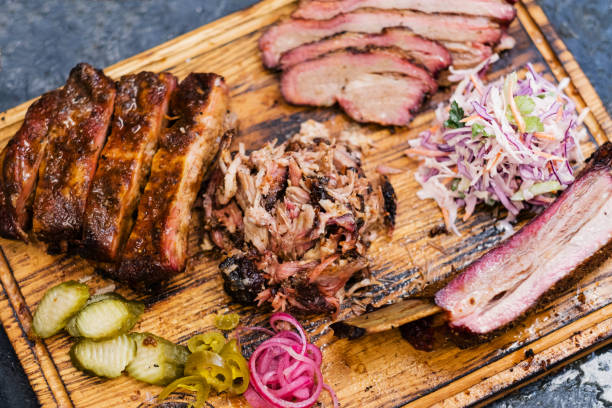If you’re going to open a new restaurant in Ontario, you’ll realize that the process can be incredibly difficult. You’ll need to search dozens of different suppliers and interview each one until you find the perfect fit – all while maintaining confidentiality.
This blog describes 5 strategies that are sure to make it so much easier for you.
1) Use online resources. Food suppliers in Ontario often offer online resources that can be a great way to find the perfect fit for your restaurant. You can access their websites, look at their product lines, and even ask for samples.
2) Talk to other businesses. Before you sign any contracts, it’s important to speak with other businesses in your area. They can provide you with valuable insight into what food suppliers are available and how to find them.
3) Attend food industry events. Food suppliers often host events where they introduce new products or announce upcoming changes to their industry. Attending these events can give you an edge when it comes time to interview suppliers.
4) Ask family and friends. Anyone who has connections in the food industry should be asked if they know of any potential suppliers. Even if they don’t have any connections themselves, they may know someone who does.
5) Hold a private tasting. Once you’ve narrowed down your list of potential suppliers, it’s time to hold a private tasting. This will allow you to try each supplier’s products without having to commit to anything long-term.
How to choose the right food suppliers
Looking for the suppliers who want to deliver fresh and frozen food? Then, you can hire the best food suppliers in Ontario that will offer a wide range of products to deliver to your restaurants according to your needs. Here are five tips to help you choose the right supplier:
- Look for local suppliers. Locally-sourced foods are typically fresher and have been produced using less energy and pesticide than food sourced from afar.
- Check if the supplier has compliance certification. Suppliers that have certified sustainable practices will often be healthier options for you, as they tend to use fewer additives and preservatives.
- Choose organic or sustainable produce when possible. These crops are grown without any pesticides, herbicides or fertilizers, meaning they’re healthier for you and the environment.
- Go local during culinary school recesses! At these times of year, many local farmers are looking to liquidate their produce stocks, opening up opportunities for you to buy at a discounted price.
- Ask about farm policies before making a purchase! Some farms may not accept frozen products or canned goods, while others may only sell local produce during certain periods of the year (such as Harvestfest).
So there you have it – five tips on how to choose the right food suppliers in Ontario! By following these guidelines, you can be sure that your meals reflect your values and priorities – both environmentally and nutritionally speaking!
Types of food suppliers
There are many types of food suppliers in Ontario, so it can be difficult to know who to consult. The best way to find the right supplier is by doing your research.
Here are some tips for researching food suppliers:
-Look online: There are a number of websites that offer resources about food suppliers in Ontario. Check out companies like Food Navigator Canada and Food Canada Online for information on local and national suppliers, respectively.
-Ask around: Talk to your friends, family, and colleagues about their experiences ordering food from different suppliers. You may be surprised at how much useful information you can gather this way.
-Contact food distributors: Many large grocery stores in Ontario contract with local food distributors to supply their shelves with a variety of foods. If you’re looking for a specific type of food or brand, contacting a distributor might be your best bet.
-Talk to farmers’ markets and community gardens: These sources often have access to small, local producers that you won’t find at most grocery stores. Check out the listings for nearby markets or gardens and see if any of them appeal to your taste buds.
Defining Words in Food Services
Before you can begin your search for the right food suppliers in Ontario, it is important to understand exactly what those words mean.
When looking for food suppliers, it is important to define terms like “local” and “organic.” Local food means that the food was grown or produced within a certain radius of where it will be used. Organic foods are not subject to chemical pesticides or fertilizers, which means they are usually grown using traditional methods. This can be a good option if you want to support sustainable farming practices.
When comparing food suppliers, it is also important to consider their quality and service. Look for suppliers who have a good reputation and who have been in business for a long time. They should also have a good track record with customers. Finally, make sure that the supplier has the resources necessary to meet your specific needs.
Making a list
Food suppliers are an important part of any business. When sourcing food for your restaurant or catering service, it’s important to ensure that you find the right supplier. This can be a difficult task, especially if you’re new to the industry. Here are five tips for finding food suppliers in Ontario:
- Research local businesses. Small businesses are often more reliable and responsive to customer needs than larger corporations. Ask around for recommendations or look online for directories of local businesses.
- Contact food manufacturers. Many large companies contract out production of their products to smaller manufacturers. If you contact the manufacturer directly, they may be willing to work with you as a new supplier.
- Attend trade shows and events related to your industry. Food fairs and trade shows provide an opportunity to meet potential suppliers face-to-face and see how their products can fit into your operation.
- network with other restaurateurs and catering professionals in your area.. Other restaurateurs often have direct connections with quality food suppliers that they can recommend
- Use social media channels to reach out to potential food suppliers.. Social media networks like LinkedIn allow you to network with people in your industry and build relationships that could lead to quality transactions
Visiting your choices
Choosing the right food supplier can be a daunting task, but with some research, you can find the best fit for your needs. Here are a few tips to get started:
- Do your research
One of the first steps is to do your research. This means looking at consumer reviews, reading ingredient lists and assessing how healthy a particular product is. It’s also important to consider whether a supplier is trustworthy and has a good reputation.
- Consider geographic location
Another key factor to consider is geographic location. Will the supplier be able to provide you with products that match your specific needs? For example, if you’re interested in organic food, make sure the supplier you’re considering is licensed and certified by an organization like Food Canada.
- Familiarize yourself with rules and regulations surrounding food imports
If you’re planning on importing food from outside of Canada, be aware of certain rules and regulations that may apply. For example, there are limits on the types of foods that can be imported and how much they can weigh per person per month. Make sure you fully understand any restrictions before making a purchase.








